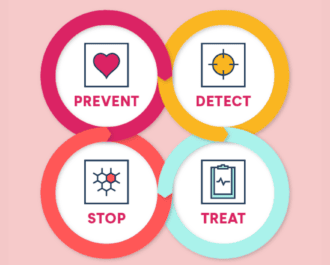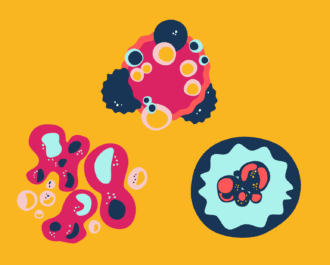
We know that good and bad bacteria, or more accurately, beneficial and non-beneficial microorganisms, affect our overall health and wellbeing, and we are slowly beginning to understand their influence on specific disease areas.
Just recently a study found that bad gut bacteria and an insufficient amount of good bacterial in the gut could be directly linked to multiple sclerosis. Bacteria are known to be a cause of gastric cancer, and now two studies have been released linking bacteria to breast cancer.
Bacteria have many ways of entering the body; all they need is an opening, such as mouth, nose, ears or open wounds. But because they are so tiny, just a couple of micrometres in length, they can also enter the body through pores in the skin.
There are a couple of ways bacteria could be found in the breast. Each breast has six to eight ductal openings at the surface of the nipple for breastfeeding. These small passages could allow entry of bacterial microbes from the outside environment, possibly from the mouth during breastfeeding or sexual activity.
Although the presence of bacteria in breast tissue has been previously documented, a research team in the US is the first to show that there are differences in the bacteria present in the ductal fluids analysed from women who have experienced breast cancer and the bacteria present in those who have not.
A second study has also found that bacteria which can aid and abet the growth of breast cancer are found in the breasts of patients. They also discovered that when beneficial bacteria are found in larger numbers in healthy breasts, they potentially have a protective effect.
The Canadian researchers were motivated by the knowledge that breast cancer risk decreases with breast feeding. “Since human milk contains beneficial bacteria, we wondered if they might be playing a role in lowering the risk of cancer. Or, could other bacterial types influence cancer formation in the mammary gland in women who had never lactated? To even explore the question, we needed first to show that bacteria are indeed present in breast tissue.”
The links between bacteria and breast cancer have not been thoroughly explored, with some scientists balking at the idea. However, these studies open the door to more research to increase our understanding of both healthy and cancerous breasts, and also could lead to recommendations to increase probiotic intake to protect against breast cancer, and antibiotics to better manage breast cancer care.
More News Articles
View all News


